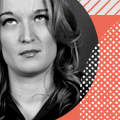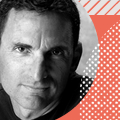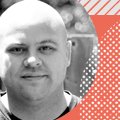Workshops
Nine workshops over three days! Covering content strategy, user experience, design entrepreneurialism, modern design workflows and much more, these workshops offer an unparalleled opportunity to learn from the best teachers in the industry.
You’ll go back to your work refreshed, inspired and with new skills you’ll be able to implement immediately.
Karen McGrane
Content strategy into your design process

- When: Monday 11th February, 9:00-5:00pm
- Where: Civic Suite, Wellington Town Hall, 111 Wakefield Street
- With: Karen McGrane
- SOLD OUT!
This workshop has now sold out. If you wish to be waitlisted, email:
Natasha Lampard. - ($650 if attending conference, $795 if not)
Nobody expects the editor of a newspaper to also operate the printing press. But people responsible for developing content for the internet are expected to deal with it all— from communication goals to publishing tools. In this session, you’ll learn to look at content from the perspective of people and on the terms of technology. See how your site’s content directly and indirectly affects user experience, design, and interactivity on every platform. Then bring content strategy into your UX process.
Getting your arms around your content through audits and inventories:
- Taking a deep dive into your existing content through a content inventory
- Judging whether your content is any good with a content audit
- Planning next steps and what needs to be developed with a gap analysis
Informing structure and design by modeling content first:
- The differences between content strategy and content management
- What it means to have structure in your content
- The interactive and development benefits of early content modeling
Fusing content strategy with your existing project life cycles:
- Ways to choose, prioritize, and craft content to elegantly span platforms
- How audits and inventories help you identify content for cross-channel publishing
- Exercises to break down content into digestible content types
Creating a content workflow to maintain content over the long haul:
- How to define your editorial process, workflow, and governance model
- The systems approach to managing content, including keeping roles and permissions sane
- Appropriate checkpoints for establishing a workflow without making it burdensome
Clay Johnson
How To Take Over Your Town

- When: Monday 11th February, 9:00-5:00pm
- Where: Civic Suite, Wellington Town Hall, 111 Wakefield Street
- With: Clay Johnson
- Register now!
- ($650 if attending conference, $795 if not)
Throughout human history, there’s always been a class of people who understood how to deal with information better than the average joe — and those people have a tremendous impact on their local communities. 5000 years ago it was the scribe. 500 years ago it was the printer, and today it’s the developer and designer.
The future of government isn’t in the code of law, it’s in the code of software. Come to a full day workshop and learn from Clay Johnson who will teach us organizing for developers, and how developers can use their skills to make their communities work better.
Craig Mod
Thinking Digital Physical: exploring the flip-flop

- When: Monday 11th February, 9:00am-12:30pm
- Where: Civic Suite, Wellington Town Hall, 111 Wakefield Street
- With: Craig Mod
- Register now!
- ($395 if attending conference, $495 if not)
It’s most present in domains like publishing — this shift from the physical and tangible to the etherial and digital. But there’s a more pervasive, more inclusive creep of this shift happening all around us. From checkins and tagging friends, to taking photos with iPhones instead of point and shoot cameras. We’re plugging everything into the network and that’s having some curious effects on the way we think about content, tangibility and ‘existence.’
We’ll focus primarily on publishing — for example: the differences between publishing on the open web verses in a walled off iOS app. How does that affect engagement? How do iBooks and Kindle approach these publishing spaces differently?
Together, let’s explore what this means as web developers, content creators, publishers and humans.
What you'll learn
We’ll learn how to think about jumping between the states of physical and digital. And how to avoid doomed attempts to thoughtlessly shoehorn the old into the new.
Who it's for
Content creators, publishers and editors would do well to attend. But it’s also for anyone crafting applications or running startups that connect the ‘real’ with the digital.
What to bring
Paper and pens.
Garr Reynolds
Presenting Naked (with or without visuals)

- When: Tuesday 12th February, 9:00-5:00pm
- Where: Civic Suite, Wellington Town Hall, 111 Wakefield Street
- With: Garr Reynolds
- Register now!
- ($650 if attending conference, $795 if not)
In this interactive, upbeat seminar, designer and professor Garr Reynolds will discuss how to prepare, design, and deliver powerful and visual presentations that connect, engage, and move audiences to make a change or take action. As always, Garr will be drawing on lessons from Japanese aesthetic principles and the tenets of simplicity to show you how to create and deliver messages with more connection and engagement regardless of what digital tools you use.
Karen McGrane
Content strategy for mobile

- When: Tuesday 12th February, 9:00-5:00pm
- Where: Civic Suite, Wellington Town Hall, 111 Wakefield Street
- With: Karen McGrane
- SOLD OUT!
This workshop has now sold out. If you wish to be waitlisted, email:
Natasha Lampard. - ($650 if attending conference, $795 if not)
With users engaging more deeply and frequently with their mobile devices, they’re expecting an experience that’s as good as—even better than—the desktop web. It’s time to think about developing your content strategy for mobile. This workshop explores the challenges and constraints of presenting content in mobile interfaces and contexts. Desktop websites have gotten cluttered with useless information that doesn’t meet user needs. Mobile offers an opportunity to re-prioritize messages, rewrite jargon, and remove outdated information. You’ll learn how to use mobile as a wedge to create a better experience for ALL users.
This workshop will include a mix of hands-on exercises, discussion, and review of themes, problems, and real-world examples. We’ll analyze content from desktop websites and mobile websites and apps to uncover what works (and what doesn’t) when publishing on mobile.
What you'll learn
In this workshop, you’ll learn:
- Prioritizing messages and content for the constraints of mobile
- Writing for people who are reading with just one eye
- Structuring content to be navigated with one thumb
- Creating editorial processes to COPE with the demands of mobile (Create Once, Publish Everywhere)
- Why your CMS needs to evolve to support mobile publishing
- How your governance model and organizational structure may need to adapt
Hands on-exercises include:
- Convince your CEO: how to fit mobile content strategy into your overall business strategy
- Auditing and inventorying content with an eye to mobile (and how to improve the experience for desktop users too)
- Messaging architecture and prioritizing content for mobile screens
- Content modeling and CMS UX design: how chunks and metadata support mobile content strategy
Who it's for
Attendees of this workshop are likely to be people who have a medium to large-size base of content that they’re looking to publish onto a variety of mobile devices. This workshop will be appropriate for all experience levels.
Jim Coudal
How to take control of your creative work and life by getting rid of your clients

- When: Tuesday 12th February, 9:00am-12:30pm
- Where: Civic Suite, Wellington Town Hall, 111 Wakefield Street
- With: Jim Coudal
- Register now!
- ($395 if attending conference, $495 if not)
The work-for-hire system is broken, your great work profits your clients more than it profits you. Having your livelihood in someone else’s hands is precarious, and with rare exception, the work itself suffers in the client/creative environment. Doing work you are not proud of will eventually eat your soul.
The skills you’ve developed on behalf of your clients are exactly the skills you need to launch your own businesses
Aim low. Fail frequently. Surprisingly, that’s the path to freedom.
Chris Coyier
The modern web designer’s workflow

- When: Wednesday 13th February, 9:00-12:30pm
- Where: Civic Suite, Wellington Town Hall, 111 Wakefield Street
- With: Chris Coyier
- SOLD OUT!
This workshop has now sold out. If you wish to be waitlisted, email:
Natasha Lampard. - ($395 if attending conference, $495 if not)
This workshop is going to be covering the complete front end web designer’s workflow, starting from scratch. A sloppy workflow leads to sloppy work. Good work begins with a good workflow. With a good workflow in place, everything benefits. You can work faster, it is easier to make changes, and you are more likely to actually make changes because it makes development more fun.
We’ll start with the tools we plan to use and getting a proper working environment set up. We’ll use Sass & Compass to make stylesheet authoring much easier and better on all fronts. We’ll use CodeKit to do “style injection” which again speeds us up.
We’ll write semantic markup. We’ll build grids and other simple design patterns. We’ll write some JavaScript to enhance our design and add functionality. We’ll think about performance and make it part of our workflow. We’ll build a website!
What you'll learn
Since we’re all different people in different situations at different organizations, what you will take away from this will be different from everyone else. Perhaps some workflow steps you already do and it will reaffirm your choice to do it that way. Perhaps some workflow steps will be completely new to you. Some of them might be a perfect fit for your work right now and make your job easier or better. Some of them might be a huge challenge for you to implement in your current organization. Even those, you should be aware of so you have the knowledge to participate in or lead the change when change comes along.
Who it's for
This workshop is for “front end” people. You should have an understanding of HTML and CSS – how to write those things and how they relate to each other. You don’t need to be a pro! We’ll cover everything in detail, but you might feel a bit lost if you’re an absolute beginner hoping to learn web design from scratch at this workshop.
What to bring
Just a laptop. We’re live coding, so you might to follow along and write code as well, or take notes, or tweet jokes or whatever. We might be doing some live interactive coding stuff too, which will require a laptop.
Adam Greenfield
Systems/layers walkshop – MKII: a commemorative exploration of downtown Wellington

- When: Wednesday 13th February, 9:00-12:30pm
- Where: Civic Suite, Wellington Town Hall, 111 Wakefield Street
- With: Adam Greenfield
- SOLD OUT!
This workshop has now sold out. If you wish to be waitlisted, email:
Natasha Lampard. - ($395 if attending conference, $495 if not)
At Webstock 2010, Do projects’ Nurri Kim and Adam Greenfield offered attendees the original Systems/Layers walkshop — the very first in what has become a worldwide series of investigations of the urban terrain, in cities from Taipei to Toronto and Bristol to Barcelona. Join Nurri and Adam for this commemorative exploration of downtown Wellington, followed by a detailed discussion on running your own walkshop.
The first portion of the session will be dedicated to a slow and considered walk through a reasonably dense and built-up section of Wellington. What we’re looking for are appearances of the networked digital in the physical, and vice versa: apertures through which the things that happen in the real world drive the “network weather,” and contexts in which that weather affects what people see, confront and are able to do.
Participants are asked to pay particular attention to:
- Places where information is being collected by the network
- Places where networked information is being displayed
- Places where networked information is being acted upon, either by people directly, or by physical systems that affect the choices people have available to them
This portion of the day will take around 90 minutes, after which we gather in a convenient “command post” to map, review and discuss the things we’ve encountered. We allot an hour for this, but since we’re inclined to choose a command post offering reasonably-priced food and drink, discussion can go on as long as participants feel like hanging out. Finally, we open-source the whole thing! We’ll discuss how you can run a similar walkshop of your own, anywhere that’s of interest to you and anytime you choose.
What you'll learn
You’ll learn how to set up and run a Systems/Layers walkshop of your own, including advice on site selection, how to manage recruitment and registration, the logistics of leading a group through dense city streets, and how to frame expectations so participants get the most from their experience.
As we’ve mentioned, the original Webstock walkshop was so successful it launched an equally successful and still-ongoing series of such investigations worldwide. Don’t miss this rare opportunity to gain insight into the ways in which networked information technology is conditioning the form and experience of cities, in the place where it all started!
Who it's for
Anyone interested in the intersection of networked technology and the urban environment.
What to bring
You’ll want to bring seasonally-appropriate clothing, good comfortable shoes, and a camera. We’ll provide maps of “the box,” the area through which we’ll be walking.
